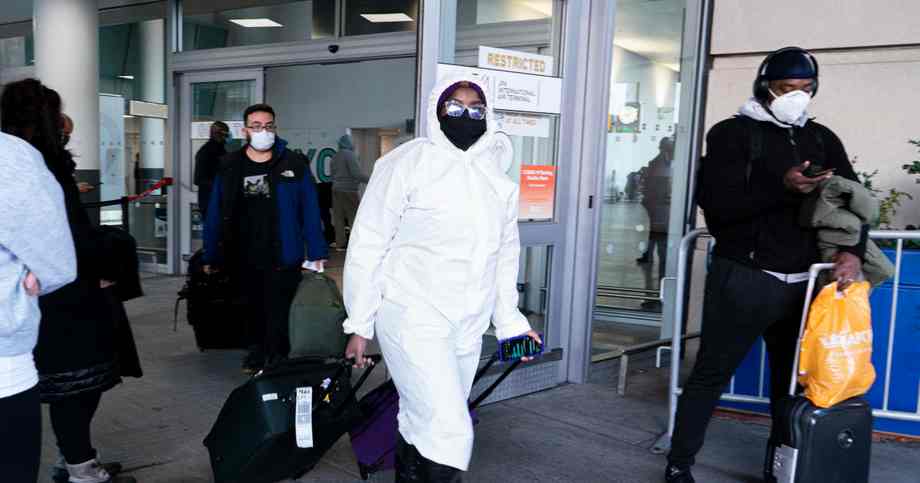
Newest COVID-19 wave prone to trigger one other 115,000 U.S. deaths by year-end, analysts say
The surge in COVID-19 linked to the quickly spreading Delta variant is prone to kill at the least 100,000 extra Individuals by year-end, Wall Avenue analysts predict.
RBC Capital Markets in a analysis be aware this week projected an extra 115,000 deaths within the U.S. this yr, basing its forecast on elements together with the rising variety of hospitalizations, native virus transmission charges and the tempo of vaccinations in opposition to the illness. That determine might climb, the funding financial institution added, if hospital emergency rooms and intensive care models develop into overwhelmed by sick sufferers within the coming weeks.
Practically 619,000 Individuals have died of COVID-19 to this point through the pandemic, in accordance with knowledge from Johns Hopkins College.
The Delta variant has develop into the dominant pressure of COVID-19 this yr, and the primary wrongdoer of rising hospitalizations and deaths. Public well being officers have talked about the variant typically in current weeks due to its capacity to outpace and replicate faster than different variants in its lineage. Most people hospitalized or killed by the Delta variant had been unvaccinated, public well being officers have stated.d.
In current weeks, coronavirus circumstances have risen quickest in Arkansas, Florida and Louisiana. The spike in Louisiana led to organizers canceling the New Orleans Jazz Competition.
Though the demise toll continues to mount, the fatality charge in the present day is way decrease than within the early phases of the pandemic. RBC additionally expects an infection charges across the U.S. to peak simply earlier than Labor Day, at roughly 263,000 constructive circumstances per day, earlier than trailing off. The U.S. is now averaging round 100,000 new circumstances per day, in accordance with the Facilities for Illness Management and Prevention.
By fall, the reopening of venues and public areas is prone to come “in matches and begins,” Dr. Brian Abrahams, co-head of biotechnology fairness analysis at RBC and an writer of the report, instructed CBS MoneyWatch.
“[W]e’re now coping with a way more transmissible variant that may additionally break by a point of immunity safety,” he stated. “By the point we roll into 2022, a big sufficient quantity of the U.S. inhabitants could have been both vaccinated or uncovered to COVID such that the excessive transmission charges will sluggish.”
The trouble to handle COVID-19 over the long-term may also require new methods to deal with the illness past present vaccines, particularly if mutations of the virus drive new outbreaks, in accordance with RBC.
“There’s going to be extra consideration to oral antiviral medication,” Abrahams stated.
That would embody protease inhibitors — a category of medication generally used to deal with HIV — now being developed to combat COVID-19 by corporations akin to Enanta Prescription drugs, Japan’s Shionogi and Pfizer.
“Although we await clear indicators of medical efficacy, oral therapies with broader exercise might allow discount of the burden on well being care techniques by protecting sick [patients] out of hospital,” RBC stated in its report.

